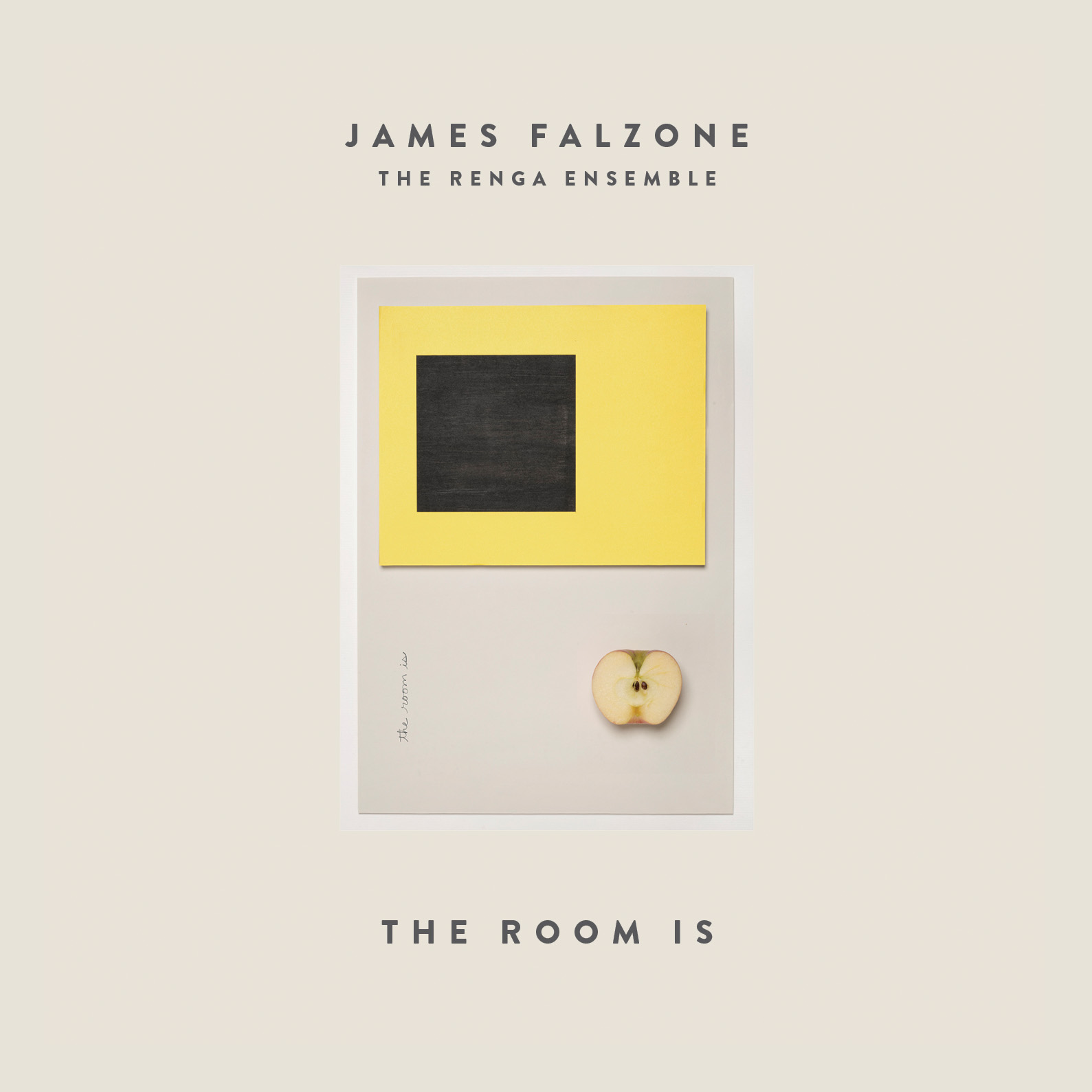by Mike Telin

Trying to define James Falzone is an impossible task — he’s capable, and willing, to tackle just about any type of music. So preparing for our Skype conversation was a challenge: what should the first question be? I opted to begin at the beginning: How did it all start?
“That’s the million dollar question, and there really is no direct answer,” Falzone said with a big laugh. “I was always interested in a lot of different kinds of music. I think this came from my early training with my uncle, who is a film composer. He’s also a great saxophonist and flutist who has played with the Chicago Symphony and studied composition with David Diamond. So he had an eclectic look at music.”
Falzone remembered that every time his uncle would visit from Los Angeles, he always brought records. “One day he gave me Stravinsky’s Firebird and a record by Charlie Parker. He didn’t tell me that one was jazz and one was classical. He simply told me it was great music, and when he returned he asked me how I liked them. Again, he never discussed them in terms of genres, so I never thought about the genres either.”
Eventually Falzone began to study privately with a Chicago teacher who was well-versed in both classical and jazz. “Every week the scope of the lessons would change. One week it was all about jazz and improvising — learning how to play Charlie Parker. The next week we’d work on Weber or the Mozart concerto. So by the time I got to high school and then into college, I was already involved in this wide breadth of music. I truly treated all music ecumenically.”
In college he added the study of World Music to the mix, and by his early 20s he began thinking about how to synthesize these musical styles. “I’m not unique when it comes to that — I know and work with a lot of musicians who are involved in similar things. For example, the musicians in the Renga Ensemble could find themselves playing classical music one night and straight-ahead jazz or improvised music another. Ned Rothenberg is a master Shakuhachi player, and Ben Goldberg is a great Klezmer player. But this is the way music is moving. Musicians are interested in and have had the training to be able to play so many different styles, so there isn’t a reason not to.”
Why did he decide to create the Renga Ensemble? “I wanted to get even less sleep, but seriously, like any artist, you can’t keep the creative impulses at bay. I had a couple of jazz-orientated projects going, but I was looking for something new. And I really love the sound of multiple clarinets — there’s just something about the overtones that are created. So I thought it would be fascinating to get a group of clarinetists together to write music that was dedicated to exploring the timbral possibilities.”
After creating a short list of clarinetists whom he admired, Falzone began contacting people and was surprised that everyone now in the ensemble wanted to be involved. “A lot of being a musician is organization. It’s creating the situation in which to realize the music. It was a long process of getting these guys in the same place at the same time.”
Finally, in the spring of 2013, everyone came together in Chicago for rehearsals and performances, and at the end of the week went into the recording studio. “I wasn’t entirely sure it would all work out, but by the end everyone was working at a very high level together, and it was clear that something exciting was happening. And as it turned out, making the recording was relatively easy. We were in the studio sitting in a circle — there were no overdubs and very few edits, and most of what you hear on the recording is first or second takes. It’s a very organic, raw way to make a record, which is the way I think improvised music should be recorded.”
Falzone’s approach to writing for the group is based in the centuries-old Japanese tradition of Renga, in which two or more poets collectively create a poem. The tradition also inspired the group’s name. But specifically it was the poetry of Anita Virgil that caught Falzone’s attention. “I’m fascinated by Haiku and have been for years. I study and write them, although not terribly well. It is a meditative process that was used in the monasteries to help the monks be more attentive and mindful of the everyday moment. But as I researched Renga more, I thought, ‘this sounds like a lot of the music I’m involved with’ — many personal voices coming together to make something new.”
Although Falzone is not a composer whose music is “about” things, he’s always looking for titles, and Anita Virgil’s poem The Room Is offered the perfect inspiration. “I took parts of the poem and they became the titles. I try to make it clear that the music is not programmatic, but there is a connection to a particular poem, as well as to the Haiku tradition of clarity, mindfulness and simplicity.”
Published on ClevelandClassical.com February 24, 2015.
Click here for a printable copy of this article




